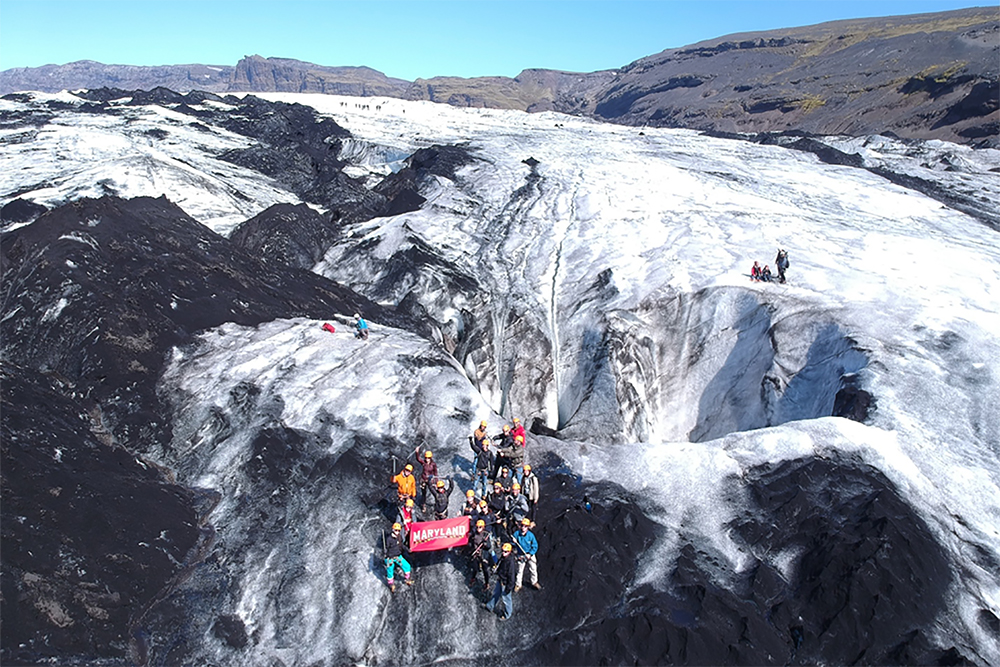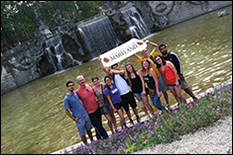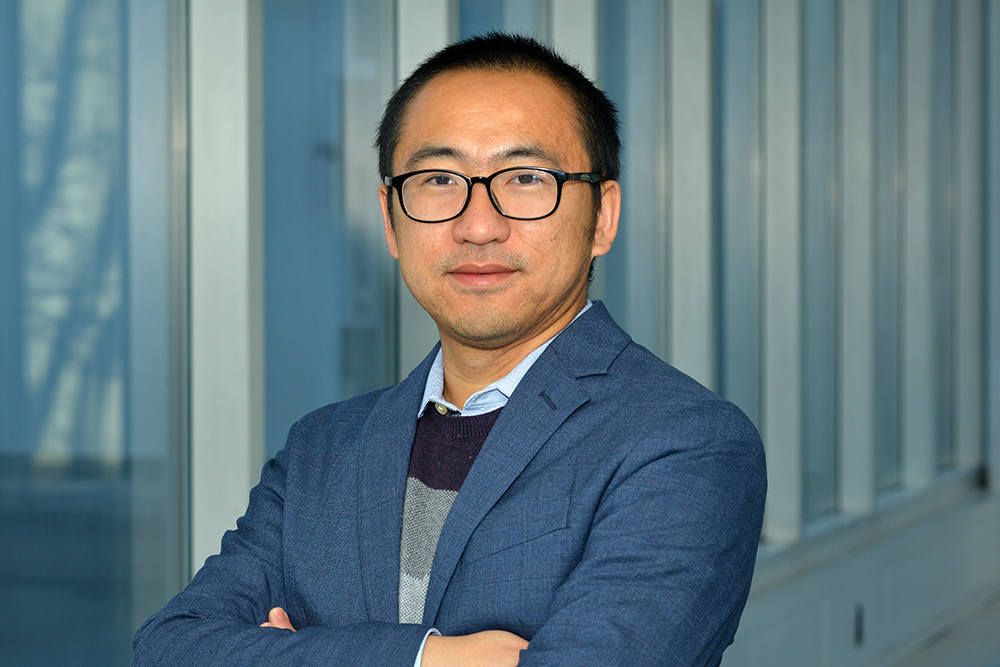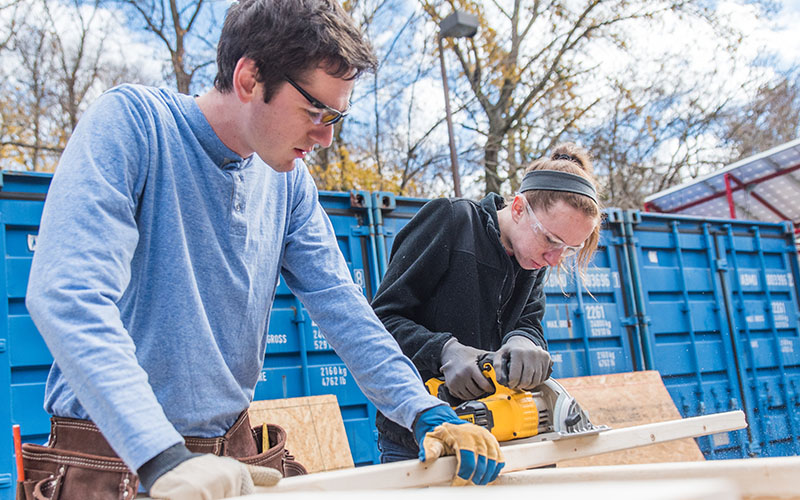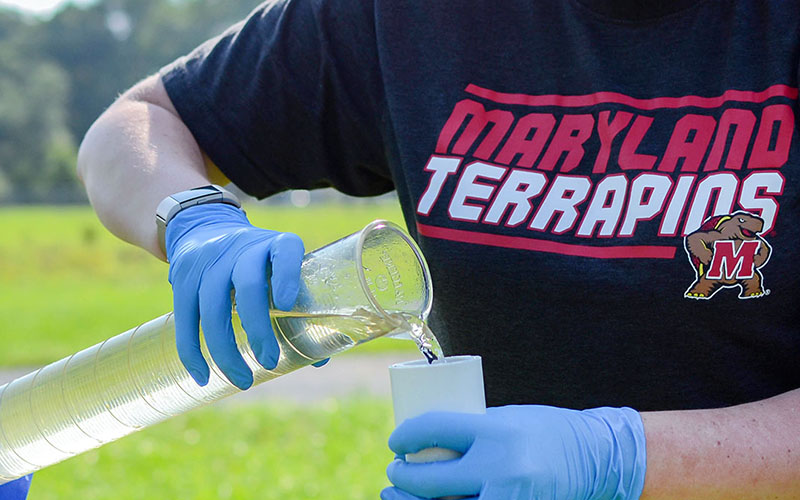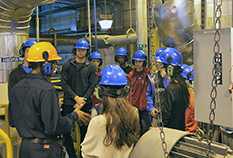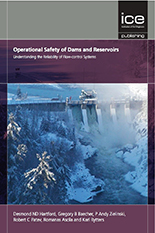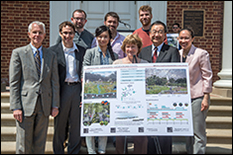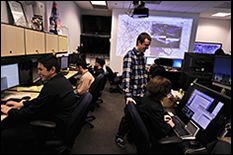News Story
For Engineering Students, A New Way to Build Global Experience

From left: Isabella Kushner, Colin Knabe, Rana Reid, and Cole Musser presented their green engineering project to expert panels in Copenhagen as part of a new course offered at UMD’s A. James Clark School of Engineering.
Study abroad courses offer international experience but don’t always fit into a student’s academic plan. Regular courses provide needed credit hours but usually don’t involve any travel.
A recently launched course, Green Global Challenge, offered at UMD’s A. James Clark School of Engineering, combines the best of both worlds. It’s a three-credit, semester-long course that is held primarily on the UMD campus and counts as an elective across many engineering departments.
The projects are centered around a green sustainability engineering competition held in Denmark. And the course culminates with a trip to the Scandinavian country, during which students receive professional-grade feedback from Danish academics and professional engineers.
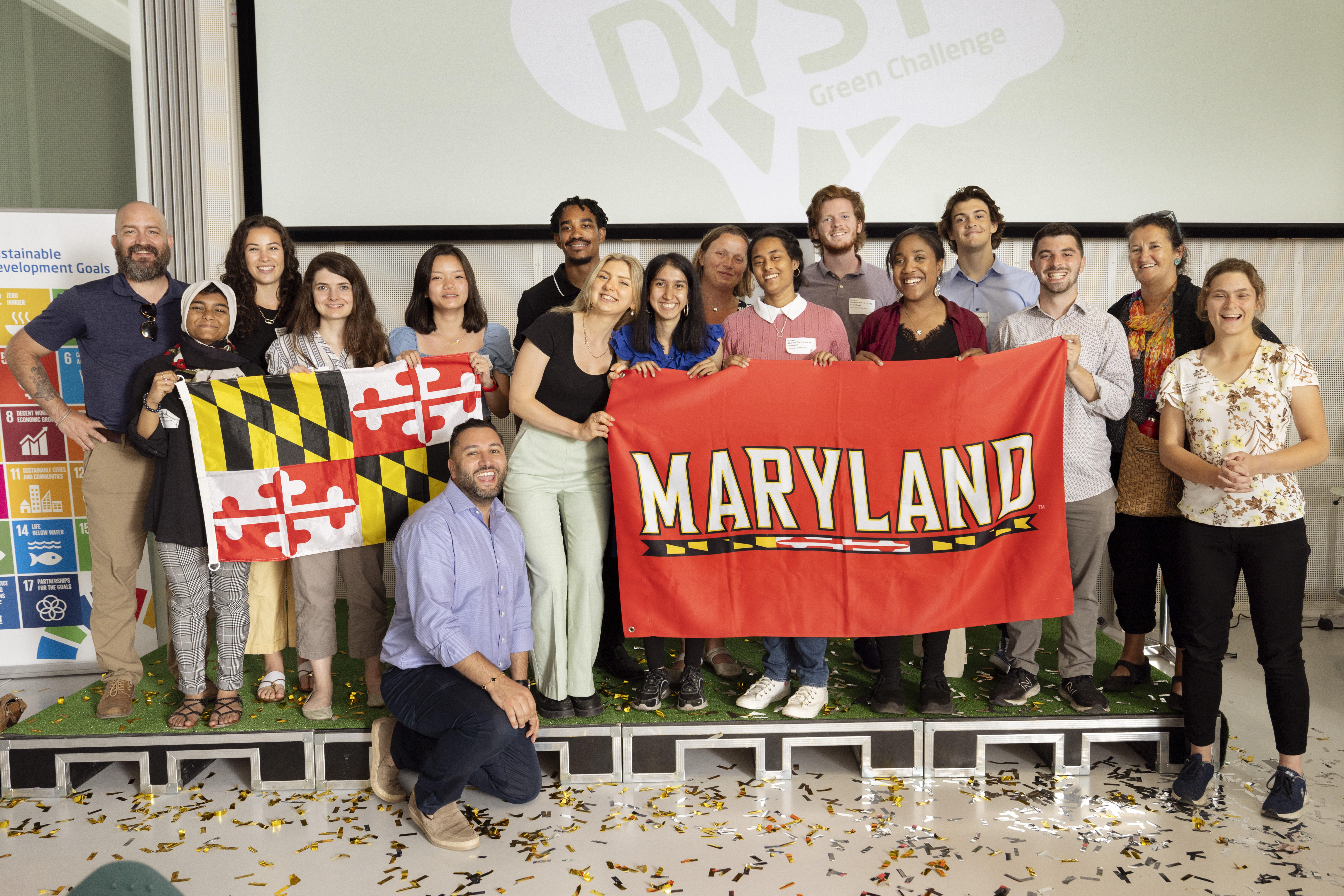 Birthe Kjellerup, associate professor of civil and environmental engineering (CEE) and chair of the CEE department’s Diversity, Equity, and Inclusion committee, developed the course in collaboration with UMD’s Office of Global Engineering Leadership.
Birthe Kjellerup, associate professor of civil and environmental engineering (CEE) and chair of the CEE department’s Diversity, Equity, and Inclusion committee, developed the course in collaboration with UMD’s Office of Global Engineering Leadership.
The idea, she said, is to “introduce students to the engineering landscape in northern Europe, specifically Denmark, and to give them the opportunity to participate in an international design competition.”
The contest, Grøn Dyst (Green Challenge), is sponsored by the Technical University of Denmark (DTU) and requires entrants to submit proposals geared towards reducing human impact on the environment. In 2022, students in Kjellerup’s course came up with ideas that included ebike battery recharging systems for long-distance travel, agricultural reuse of phosphorus, growing seaweed associated with wind turbine foundations in the ocean, and a disposal system for cigarette butts, which contain mercury and other toxins.
As part of the challenge, the UMD teams pitched their ideas to panelists that included academics, sustainability experts, and professional engineers–an experience Kjellerup sees as particularly valuable for the students.
“This was a chance for students to become acclimated to a rigorous professional engineering environment in an international context,” she said. “The feedback was direct and to the point. If the engineers didn’t understand the project or think it would work, they said so.”
UMD civil and environmental engineering senior Colin Knabe, a spring 2022 participant who worked on the cigarette disposal project, said he was looking for something that went beyond a traditional study abroad experience. “The opportunity to engage in engineering on a global scale, with this amount of commitment, is hard to find as an undergraduate,” he said. ”Not only does the course provide an international experience, but the level of interaction is high.”
Teammate Cole Musser, meanwhile, said the competition required them not only to problem-solve but to do so in the context of another culture and its value system.
“Danish culture has a more collective, community-oriented mindset compared to the United States. The solution we came up with wouldn’t work in the U.S. because it requires more of a community-oriented way of thinking,” he said. The four-person team also included Isabella Kusnner and Rana Reid, who has since graduated.
The course was a “life-changing experience that has made me a better engineer,” Musser said, adding that the knowledge and experience he gained has impressed prospective employers during job interviews.
“Not many candidates can say they have been able to present a green solution that they helped develop to world sustainability leaders in Copenhagen,” he said.
Published December 7, 2023
